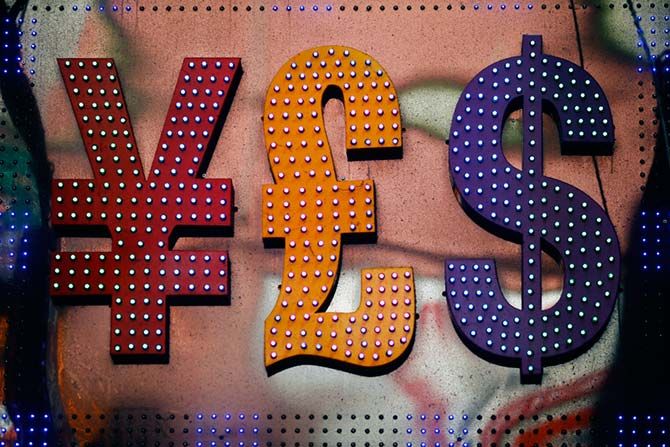There will very little direct impact from the US Fed’s rate hike this time, as India is well prepared both to handle liquidity, outflow of FII funds and managing its currency. But that doesn’t mean we will be out of the woods anytime soon, says M V Subramanian.

The United States Federal Reserve will, in all likelihood, increase the interest rate by at least 25 bps (100 basis points makes one point), though a small minority may still hope that chairman Janet Yellen will defer her decision by another quarter.
But the world over, markets have all priced in this increase, thanks to the plenty of positive indicators coming out of the US economy and reasonable inflation support. Though there are a few negatives such as the housing sector not catching up, as also the employment numbers, the overall economic upturn is far better as compared to last year.
The US Fed has waited long enough to alter its monetary policy and it is high time it formally announced a positive trend in interest rates and send out a signal that the rate movement will be slow and steady. Perhaps the next dose of increase may take another six months.
How will the rate hike impact emerging markets, more so India? In my view, there will very little direct impact from the rate increase this time, as we are well prepared both to handle liquidity, outflow of FII funds and managing our currency.
But the fluctuations in the markets (stocks as well as commodity markets) are going to be very volatile and in the next three to four months, markets all over the globe too are likely to be choppy.
Though the markets have priced in the Fed hike, the real reason for the volatility would be others like the low off-take of commodities, lower oil demand and funds flow during the year-end.
The first casualty will be the value of the Indian rupee vis-à-vis the US dollar and other major currencies. It has already gone down to Rs 67 against the USD in the past three weeks, but the outflow of further FII funds would create more demand for the US dollar, resulting in a weaker rupee.
The intentions of the Reserve Bank of India to stabilise the rate would partially balance the situation, but of all the emerging market currencies, the Indian rupee has been doing well.
Nevertheless, the rupee will weaken and perhaps reach a range of Rs 70 to 73 per US dollar in the next three months. This will greatly impact trade flow but will also not greatly benefit India, as exports have been going down for the past six quarters. The silver lining is the decline of crude prices and the likelihood of oil prices not moving up in the next six to 12 months.
The stock market is already impacted by the poor earnings of corporates over the last two quarters of the current financial year and that situation is not likely to change during the third quarter.
A turnaround in the economy is not visible, which is corroborated by the lower increase in loans and advances from the banking system.
The manufacturing sector is not showing any improvement in the past six months and due to poor monsoons, the agriculture sector is also not going to contribute much to the GDP.
Inflation is again showing signs of rising and the general public is fully aware of the real inflation when buying goods and services.
The numbers put out by the government about GDP growth and/or inflation is always taken with a pinch of salt.
The fiscal discipline target that the central government agreed to may be met this year, but the huge shortfall in the disinvestment portfolio is a cause for worry.
The increased salaries and pensions thanks to the Pay Commission recommendations will affect the fiscal deficit in the next financial year and the government has spelt out clearly how they are planning to handle it in the coming years.
Banks’ non-performing assets is a serious issue and with the central bank pushing all banks to declare their actual NPAs, they will have to now reveal the real extent of the problem.
This new initiative of the RBI, without adequate capital infusion in public sector banks, will make it detrimental for some of the banks to declare huge losses in their balance sheets and may lead to a possible downgrade in their ratings.
Parliamentary logjam in passing legislations is indeed a major issue faced by the central government and even the GST bill, which is touted as a major tax reform by the government, is unlikely to be passed during the current session of Parliament and is likely to be delayed by one more year.
The economic scenario is bleak with new investments being delayed by the private sector, and a softening of the Indian interest rate is also not visible, with the inflation rate rising slowly.
Thus, while the Fed’s rate increase alone will not matter for our economy, many of the issues -- like currency devaluation, choppy markets and non-delivery of the reforms promised -- which need the immediate attention of the central and state governments and the central bank, are bound to have an impact.
Image used for representational purposes only. Photograph: Damir Sagol/Reuters.
M V Subramanian is a retired banker.











 © 2025 Rediff.com -
© 2025 Rediff.com -